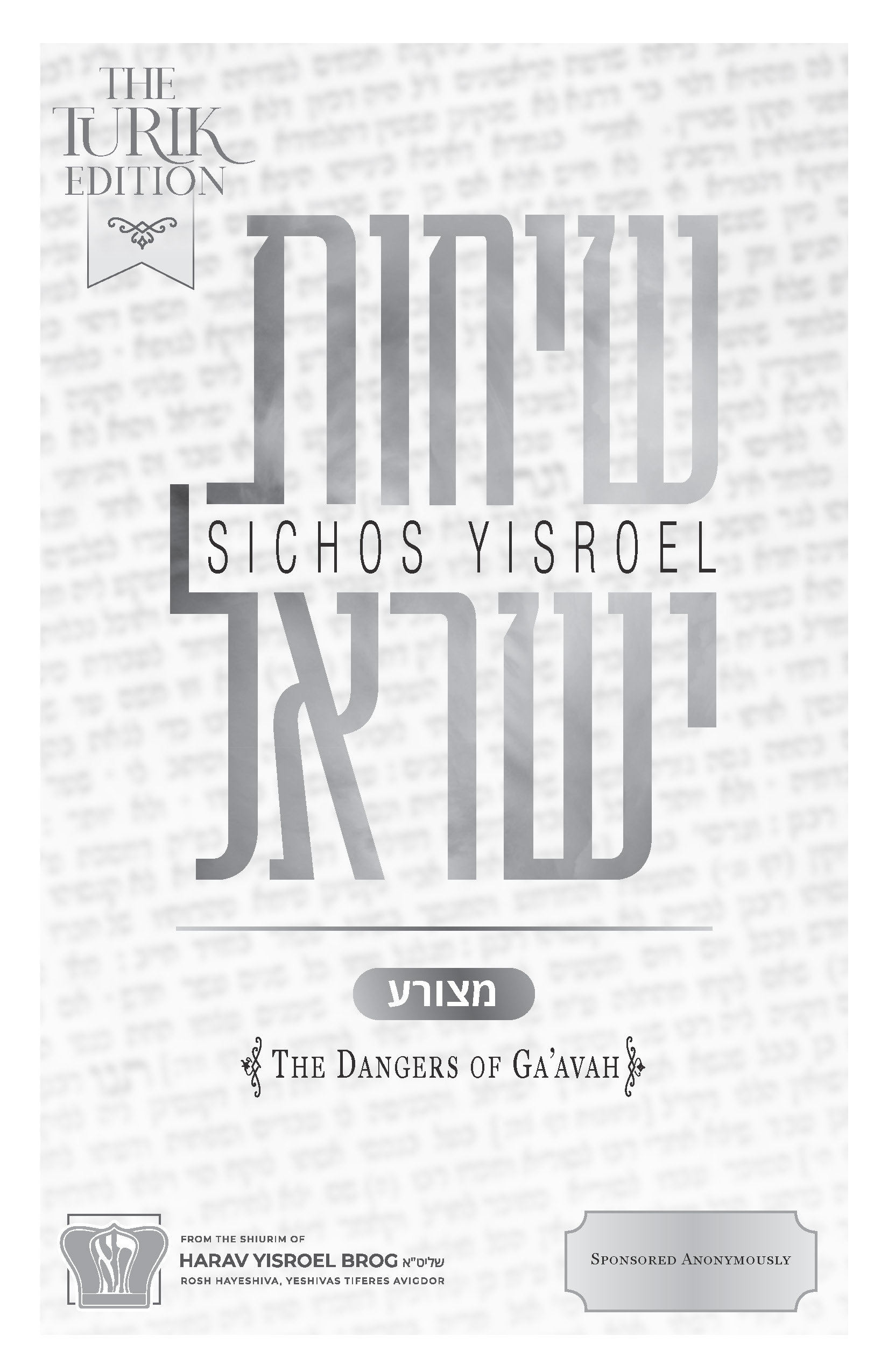
Similar Posts
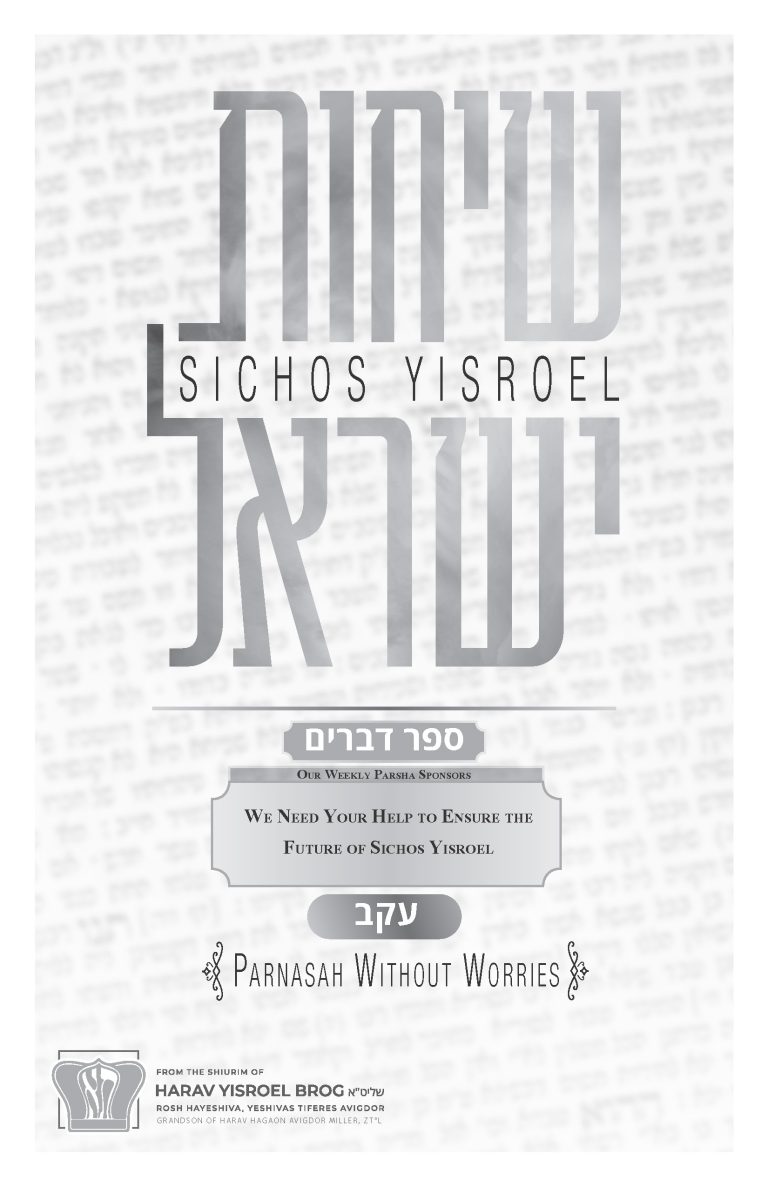
Parshas Eikev: Parnasah Without Worries
In this week’s parshah, we have the Parshas HaMann. Most people have heard about the mann, but they think that the mann only fell when the Yidden were in the desert and that really doesn’t have any shaychus to us today. Because of that, they miss tremendous lessons. They miss a tremendous wellspring, a ma’ayan, that could serve a person’s parnasah. You have to know that the mann is an eternal lesson. How do you know that? Because Hashem told Moshe Rabbeinu…
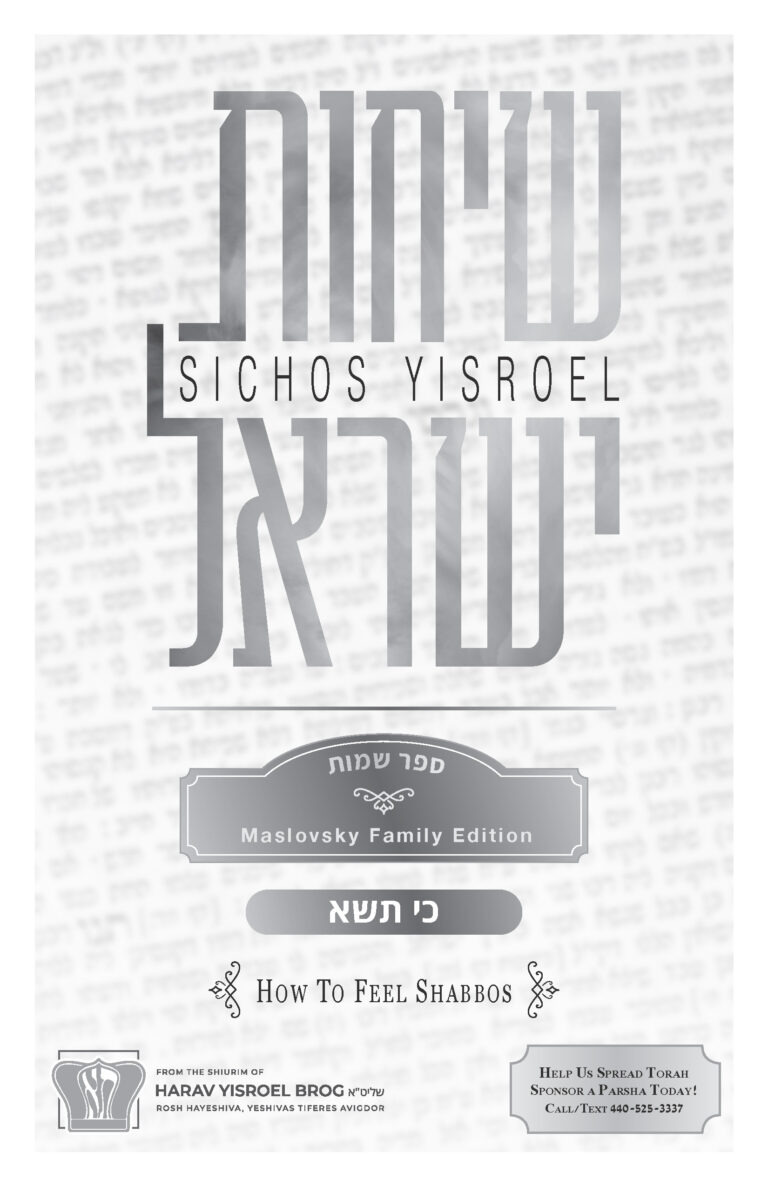
Ki Sisa 5783: How To Feel Shabbos
In this week’s Parsha, the Torah commands us regarding observance of Shabbos: ואתה דבר אל בני ישראל לאמר אך את שבתתי תשמרו כי אות הוא ביני וביניכם לדרתיכם לדעת כי אני ה’ מקדשכם – “Speak to the Bnei Yisroel and say, ‘You must keep My Shabbosos, for this is a sign between Me and you throughout the ages, that you may know that I sanctify you.” (Shemos 31:13)
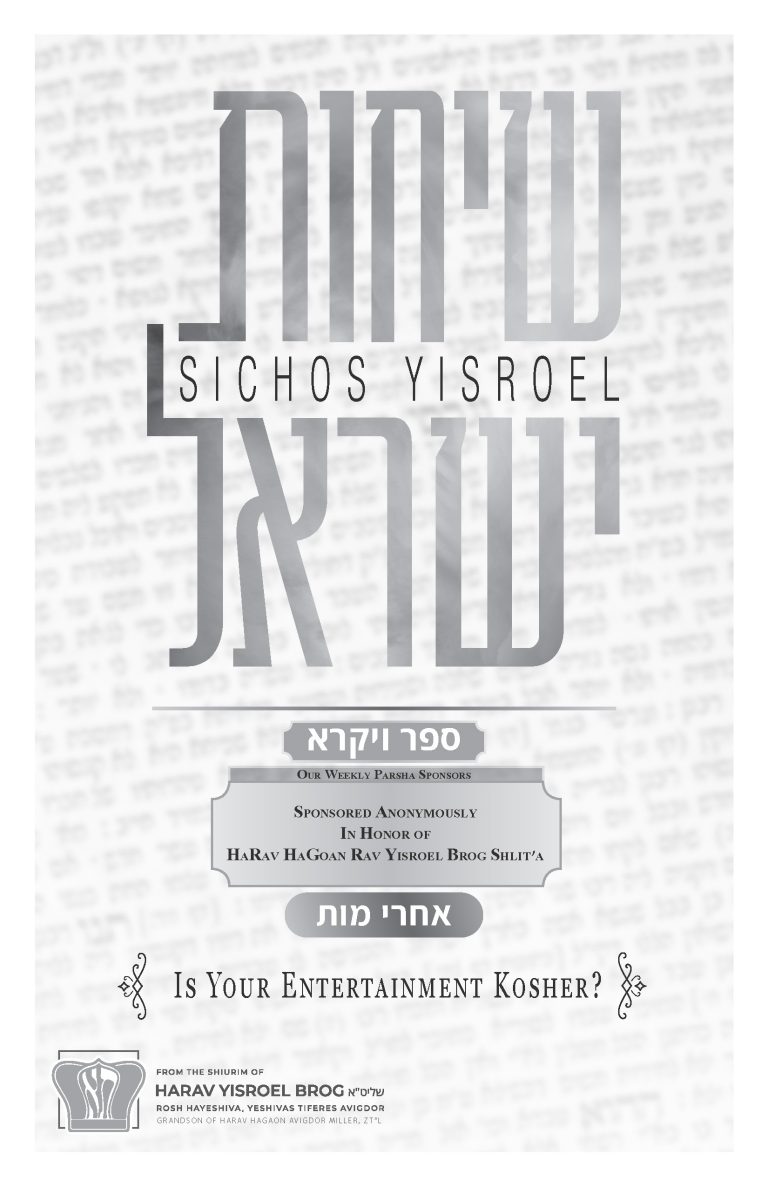
Acharei Mos 5784: Is Your Entertainment Kosher?
Today’s subject, to some people, is going to be a sensitive one. Most subjects that are sensitive to people are usually subjects in which people are challenged by the topic. For example, if we’ll speak about the importance of giving tzedakah and you’re a person who is not into tzedakah, and tzedakah is not your strong point, that’s going to be a sensitive subject for you.
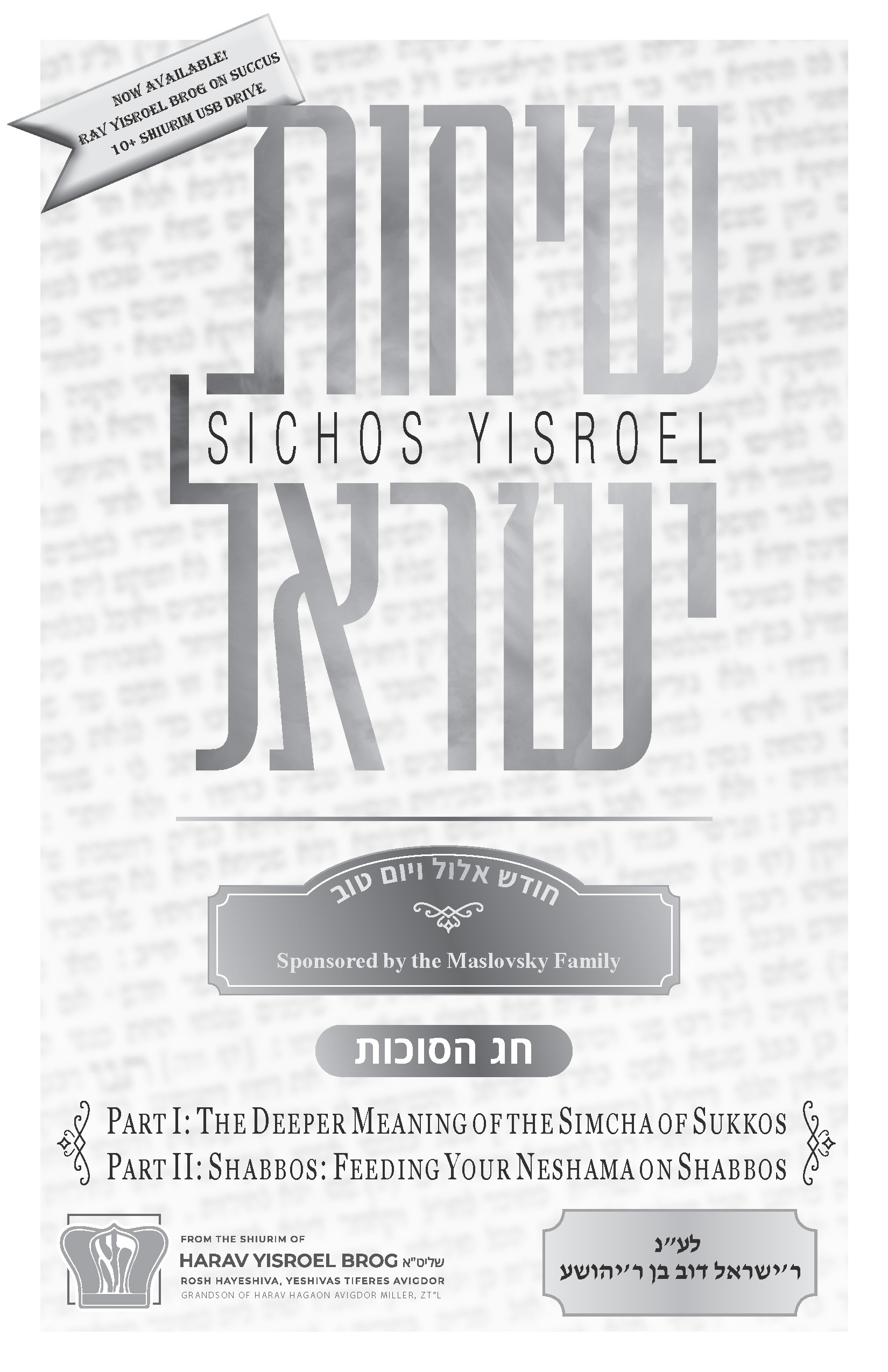
Sukkos 5784: The Deeper Meaning of the Simcha of Sukkos
We see in the gemara Rosh Hashanah (16a) that on the chag of Sukkos we are judged regarding water. It says: On Chag we are judged on water. Now, lechorah on Rosh
Hashanah, a person was already judged regarding all his personal matters and all of it was sealed on Yom Kippur. So what is the idea of being judged on water on Chag?
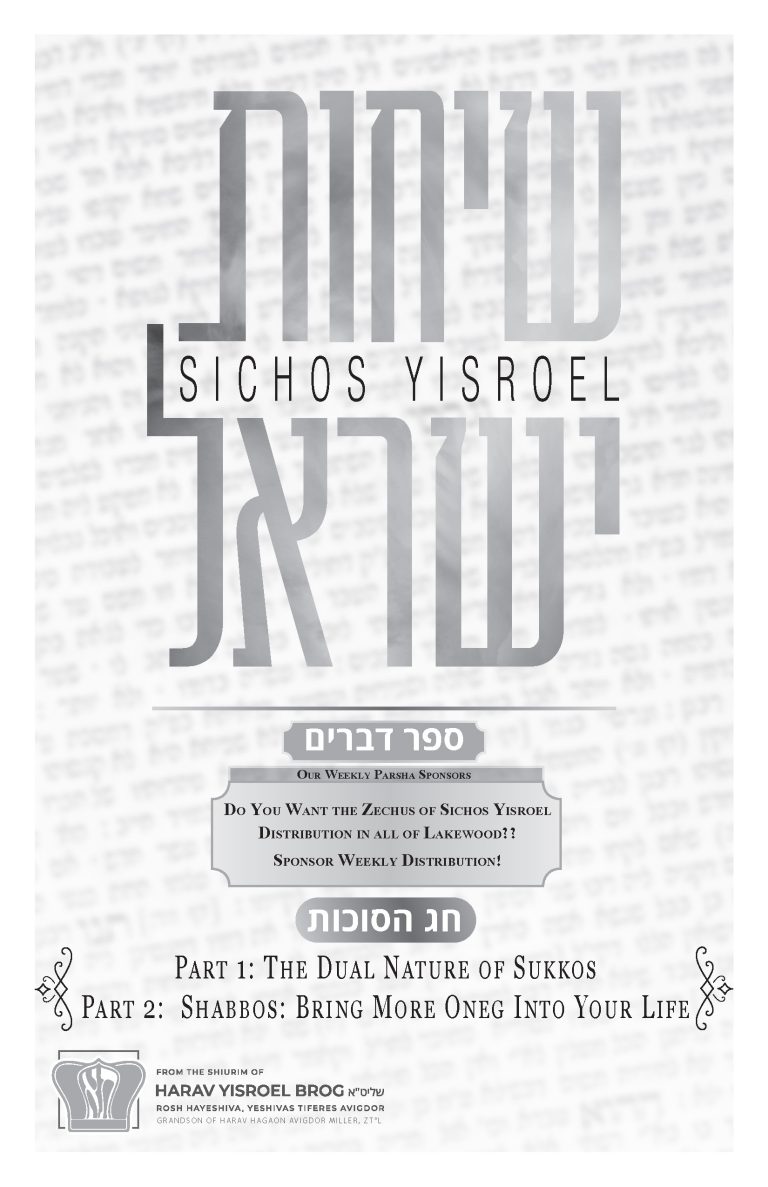
Sukkos 5785: The Dual Nature of Sukkos
Let us take a look at the end of Parshas Emor where the Torah discusses the Yom Tov of Sukkos. The pasuk says: On the 15th day of this 7th month, it is Chag Hasukkos Lahem. A few pesukim later it says: However, on the 15th day of the 7th month, when you gather in your harvest, you should celebrate a chag hashem shivas yamim. The obvious question is why does the Torah repeat these dates twice?
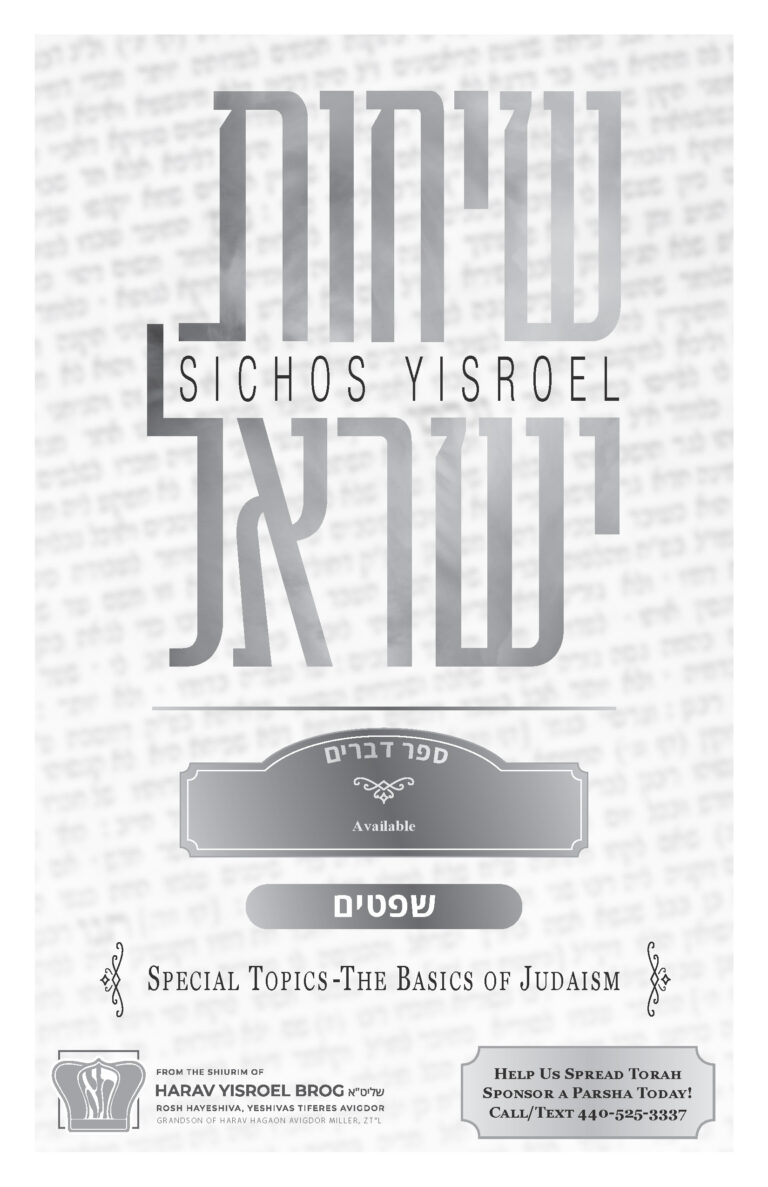
Shoftim 5783: Special Topics: The Basics of Judaism
Now, this principle of Creation and Control is such an important principle because everything about life for every individual, Jew, and non-Jew, is built upon these two things. It refers to the fact that I’m created and the fact that somebody exerts control over the world and over my life.